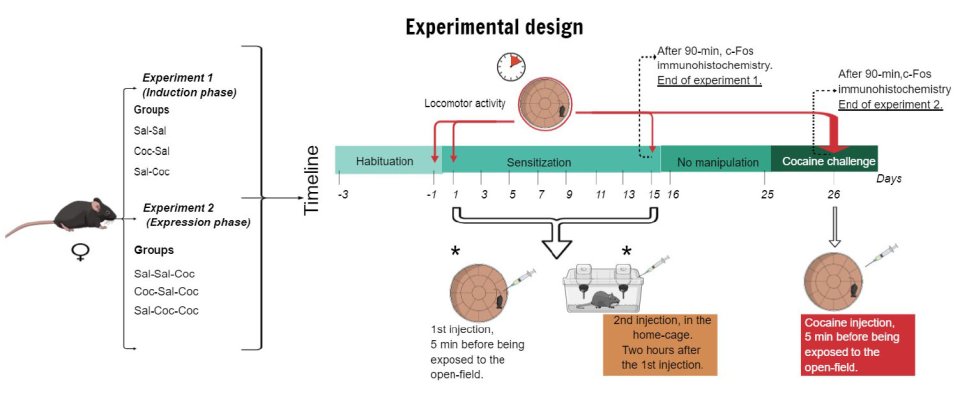Using design-based stereological methods, researchers from the Federal University of São Paulo, Brazil, and the University of Bristol Veterinary School, UK, have identified the brain structures involved in behavioural responses to cocaine. Scientists believe that the phenomenon underpins abusers compulsive desire for the drug by causing changes in several areas of the brain’s neural pathways which mediate reward and adaptive behaviours.
Learn more in the press release at the University of Bristol
Published paper: Distinctive neuroanatomic regions involved in cocaine-induced behavioral sensitization in mice by B M Longo et al. in Biomedicines

